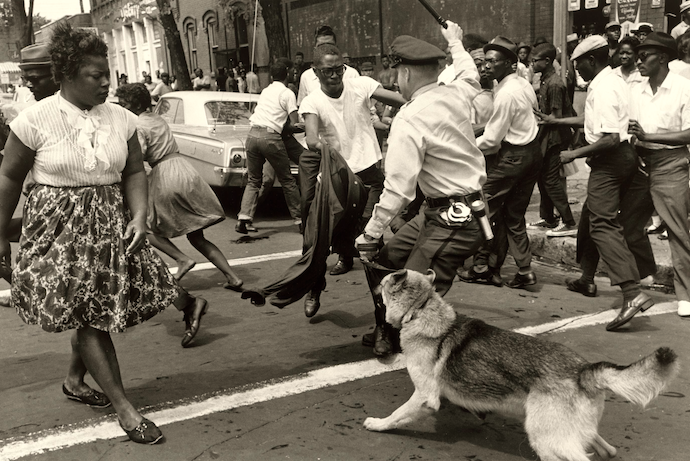- BlackVoter.Org
- Posts
- BLACKVOTER.ORG #137
BLACKVOTER.ORG #137

The recent vice presidential debate showcased stark contrasts between Minnesota Governor Tim Walz and Ohio Senator JD Vance, particularly on issues impacting Black voters. Walz champions progressive policies, including the Minnesota Voting Rights Act and significant criminal justice reforms following the George Floyd tragedy.
His focus on equity extends to education, where he recently provided free meals to students, benefiting low-income families. Meanwhile, Vance struggles to connect with Black voters amidst criticism of his extremist views, which include support for divisive policies aimed at dismantling diversity initiatives and attacking vulnerable communities.
His legislative efforts echo harmful narratives and responses to racial issues, raising concerns about his alignment with the values of many Black Americans. As the election approaches, the implications of their diverging political visions for Black voters remain significant, underscoring a pivotal moment in this democratic process.

In "This is No Ordinary Anti-Blackness," authors Kyrah Malika Daniels and Dianne M. Stewart unravel the disturbing conspiracy that claims Haitian immigrants are eating pets in Springfield, Ohio.
Originating from the public remarks of political figures like JD Vance and Donald Trump, this baseless narrative taps into a long history of anti-Black sentiment and myth-making aimed at disenfranchising Black communities. The authors highlight how these conspiracies echo past violent acts against Black Americans, and how they exploit fears surrounding Haitian Vodou, labeling it as devilish to further marginalize Black identities.
While local leaders contradict these damaging claims, the narrative has incited far-right protests and threats against Haitian citizens. With roots in racial politics and historical oppression, this episode serves as a stark reminder of the continuing struggle against racial injustice, particularly as the 2024 elections approach.
Solidarity from Springfield residents shows hope amidst turmoil, challenging these harmful stereotypes.

In a recent opinion piece, Charles M. Blow critiques Donald Trump’s dismissive comments about Vice President Kamala Harris’s involvement with Black sororities, particularly during a presidential debate.
Trump belittled Harris’s attendance at a Zeta Phi Beta convention, insinuating it was merely a “sorority party.” However, Blow asserts that these organizations, part of the historically significant Divine Nine, represent resilience, community, and social justice efforts within the Black community.
Highlighting the extensive history and influence of these groups, he argues that Trump’s perspective reflects a misunderstanding of their vital role in both cultural and political spheres. Rather than frivolous gatherings, these events serve as powerful platforms for advocacy and solidarity, challenging the notion that Harris’s commitments are not substantive.
Through this analysis, Blow emphasizes the importance of recognizing and respecting the legacy and impact of Black fraternities and sororities.

In a dramatic twist ahead of Tunisia's October 6 presidential election, Ayachi Zammel, a lesser-known political figure, has been sentenced to an astonishing 12 years in prison for alleged voter endorsement fraud. His lawyer confirmed the sentence, despite Zammel remaining in the race against incumbent President Kais Saied.
The court’s ruling adds to a series of legal troubles for Zammel, including a recent six-month sentence for document falsification. The election landscape has been marred by controversy, with numerous potential candidates sidelined or jailed, sparking concerns over the legitimacy of the electoral process.
Advocacy groups warn that the electoral environment undermines Tunisians’ democratic rights, alleging that the selection process favors Saied, who first assumed power in 2019. As the election date nears, the atmosphere grows increasingly tense, with questions looming over the fairness of the upcoming vote.

Rising prescription drug prices are hitting African Americans the hardest, particularly those over 65, according to a recent report from Patients for Affordable Drugs. With over 1,000 medications experiencing price hikes—many surpassing inflation—Black patients, often suffering from chronic conditions such as diabetes and high blood pressure, face dire consequences.
For instance, the cost of the cancer drug Enhertu has escalated eight times since 2019, significantly impacting Black women diagnosed with HER2-positive breast cancer. Compounding the crisis are pharmacy benefit managers (PBMs), whose controversial practices inflate costs further, leading to life-threatening choices for patients.
Amid these challenges, the Biden administration is stepping in with the Inflation Reduction Act, aiming to cap out-of-pocket costs for Medicare beneficiaries and negotiate lower drug prices. As advocates call for systemic change, the fight against inequitable healthcare pricing is more urgent than ever.

In Georgia, three women—Latrice Cushenberry, Eustacia McCloud Carter, and Donna Smith Aranson—are making headlines with their enthusiastic support for Kamala Harris in the upcoming presidential election. Hailing from diverse backgrounds, these women reflect on how Harris embodies the qualities they've admired in strong female figures throughout their lives.
Cushenberry connects with Harris's empathy and competence, while McCloud Carter highlights the societal challenges women face, feeling invigorated by Harris's candidacy after initially mourning the prospect of Biden stepping down. Aranson believes the state is ripe for change, pointing to recent elections as signs of progress.
With the potential to make history as the first female president, these advocates express hope that Georgia is ready to embrace this milestone, championing issues important to women and the broader electorate. Their stories encapsulate a moment of change and determination in a crucial battleground state.

In a troubling sign for her 2024 campaign, Kamala Harris is reportedly struggling with union voters—historically a cornerstone of Democratic support. Recent analyses suggest her approval ratings have dipped among this vital demographic, potentially leading to one of the poorest performances by a Democrat in a generation.
With unionized workers voicing dissatisfaction, there’s a growing concern that the administration's policies may not resonate with their needs, especially as the economy rapidly evolves. As battleground states become increasingly competitive, Harris’s waning support among these voters could jeopardize the Democratic Party’s chances in the forthcoming election.
Speculation abounds that this shift might indicate larger issues within the party's connection to working-class concerns, emphasizing the importance of addressing the needs of a voter base that feels increasingly overlooked. The road to 2024 is looking rocky for Harris as she works to regain the trust of these crucial allies.

Donald Trump’s campaign is ramping up efforts to engage black voters in Detroit, spearheaded by prominent local pastors. At a recent roundtable hosted by Pastor Lorenzo Sewell, who announced his Republican affiliation after Trump's church visit, discussions centered on aligning biblical beliefs with political choices.
Sewell and fellow pastor Apostle Ellis L. Smith emphasized the need to prioritize biblical perspectives over cultural trends, touching on issues like gender identity and abortion.
They urged other black faith leaders to stand with Trump, framing the direction of Detroit as vital to America’s future. Despite the challenges black Republicans face, including hostility and indifference within their communities, advocates like Clinton Tarver and Mike Rogers stressed the importance of grassroots campaigns and educating constituents about critical issues, especially literacy.
As the election season heats up, the Trump campaign is keen to demonstrate authentic outreach to a demographic often overlooked by Republicans.
